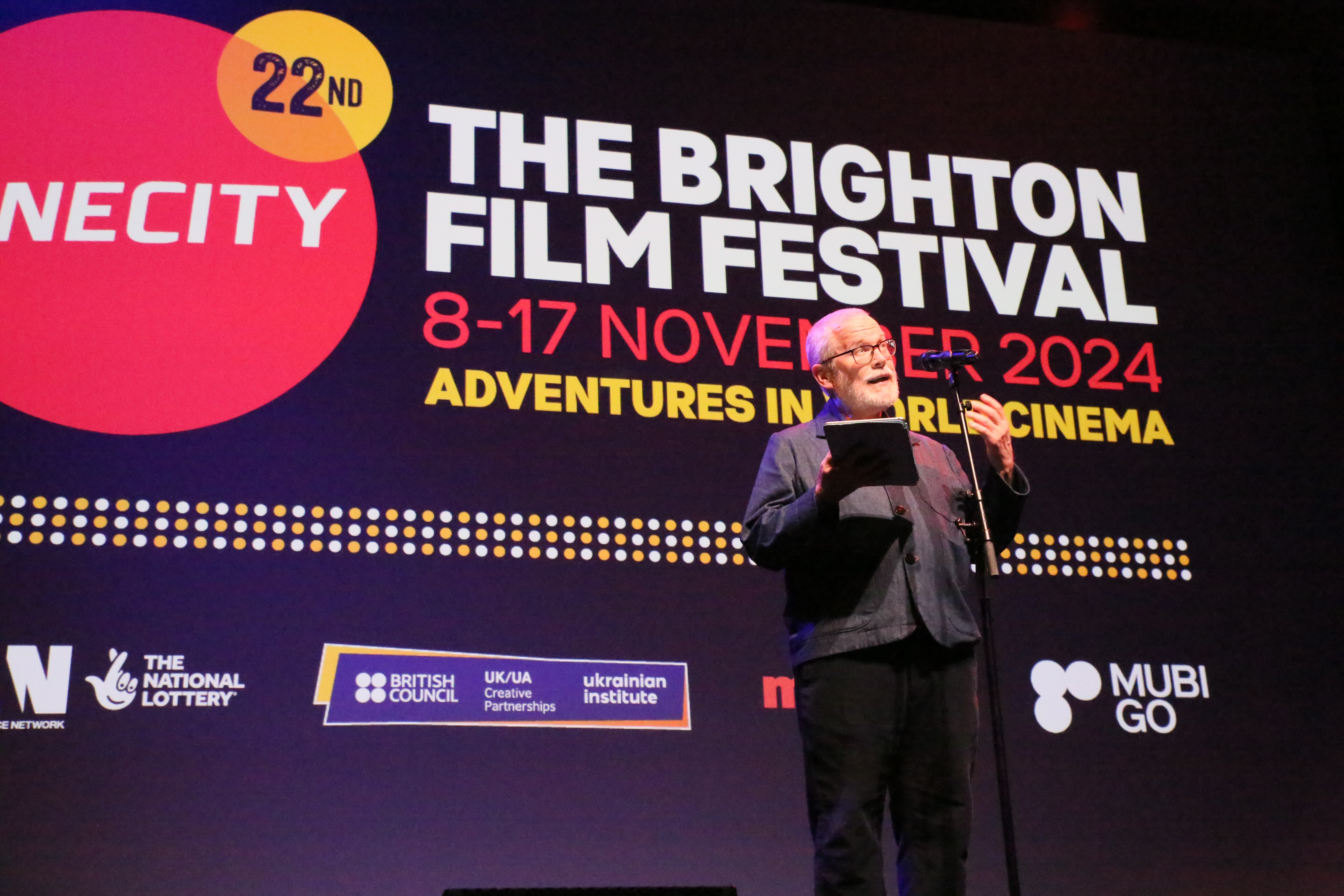
STUDENT REVIEW: FARAH
Healing Ourselves Through Mental Transformation by Ellie Bridge (University of Sussex)
Reviewed as part of CINECITY The Brighton Film Festival – Attenborough Centre for the Creative Arts 15 Nov 23.
An emotional, enthralling psychological thriller, Farah (2022), directed by Hassiba and Kenton Freiha-Oxley, is a film I was immediately immersed in and empathising with the mindset of main character Lina (Stephanie Atala). It is unlike any thriller I have encountered previously, and one that highlights important issues surrounding mental health misconceptions in a unique and compelling plot.
Lina is a Lebanese pre-med student studying in America, struggling with depression, anxiety and persistent nightmares relating to her late mother. After a nervous breakdown and psychotic break, as a result of medication prescribed to treat her symptoms, she is brought back to Beirut by her father (Majdi Machmouchi). She is then prescribed a different medication, called ‘Xapa’ or ‘Joy’, which continues to exacerbate her symptoms instead of treating them. This causes her to investigate her past, her father’s secrets, and her mother’s inexplicable death.
The depiction of Lina’s mental state, and the misinformation relating to medication and its effects, is an all-too-real portrayal of the ‘uglier’ sides of mental illness. Her frightening psychotic hallucinations and delusions, which at one point results in her unknowingly harming herself, reflect the painful reality of many suffering with mental health disorders that cause hallucinations and delusions, or even those who have dealt with medication-induced psychosis. It is something that many filmmakers are afraid to touch on, and I applaud Hassiba and Kenton Freiha-Oxley for doing so and bringing light to such a delicate and unfortunately prominent subject. The confusion and distress Lina feels throughout the film is palpable; you feel as though you are suffering with her, and we as an audience also are unsure of who to trust in Lina’s life.
Alongside the difficult topics explored, I have to note the incredible cinematography present throughout the film. There were a multitude of shots where I felt frozen in time, absolutely encapsulated by their beauty, and knew they would be planted in my mind for the foreseeable future. From the glowing cityscape of Beirut, to the misty Lebanese mountains, and even the beautiful close-ups, often utilising golden light illuminating the characters’ faces, almost every shot throughout Farah is a joy to observe and visually take in. If the gripping plot does not sound like enough to draw you in to watch this film, I implore you to watch anyway, solely for the cinematography. You will not be disappointed.
The transformation of many of the characters at the end of Farah is also beautiful to watch; Lina’s journey to happiness and contentment, the rebuilding of her relationship with and reconnection to her father, and her gracious realisation as to who has truly given her maternal love throughout her life. The acceptance of her past and ability to proceed with things like education, despite such intense trauma, particularly resonated with me, and I’m sure many other university students or those who pursue higher education, can relate to as well.
Lina shows us that it is possible to get through traumatic events, and to live afterwards. Not just to exist and survive as a human, but to live. Despite how exhausting and impossible it can feel when dealing with mental illness, happiness is still always possible.
